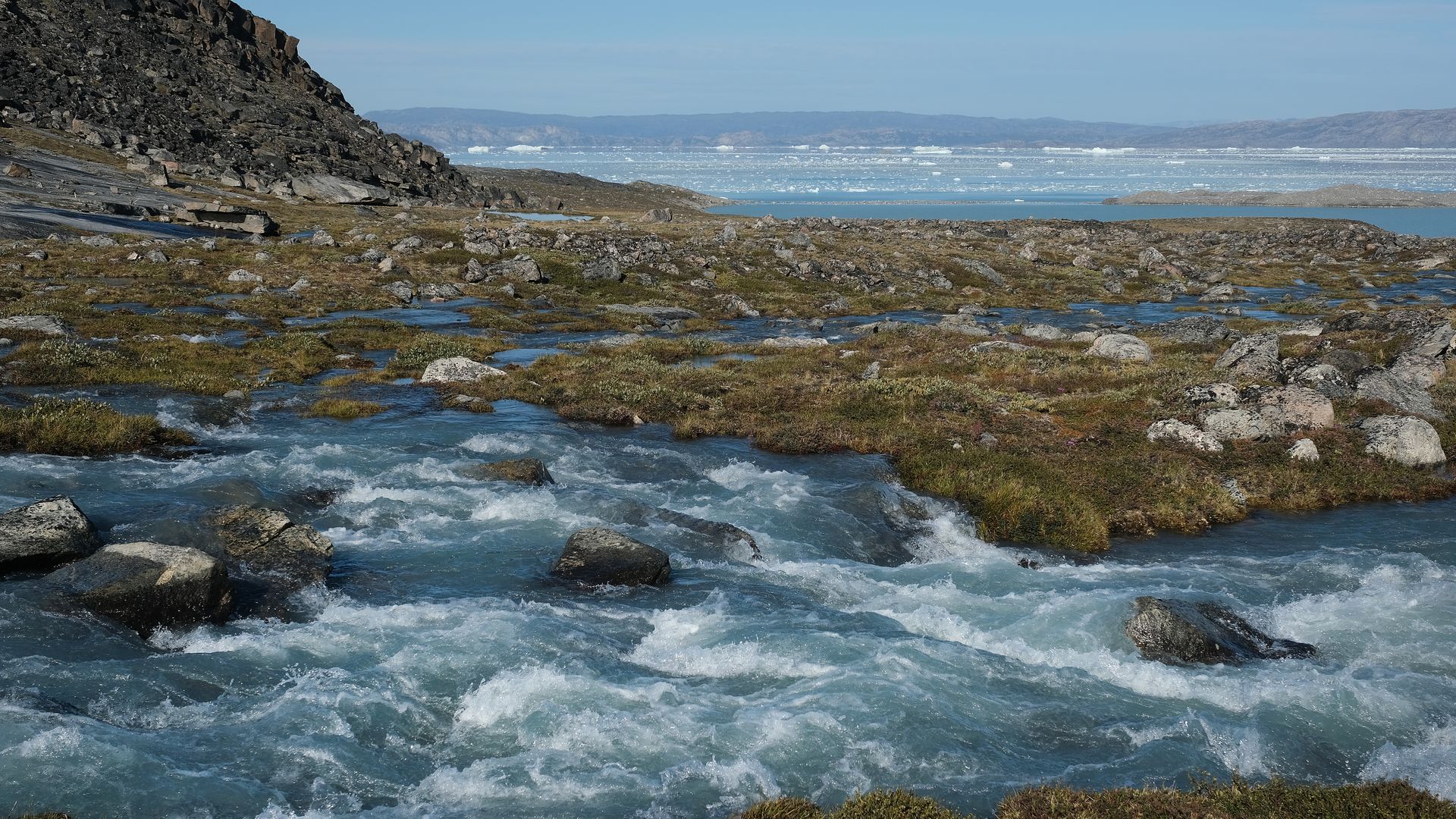Study: Greenland ice sheet melts beyond repair
Add Axios as your preferred source to
see more of our stories on Google.

Western Greenland. Photo: Sean Gallup/Getty Images
Greenland's ice sheet has melted beyond the point of no return, contributing to rising ocean levels, a new study published in the journal Nature Communications Earth and Environment finds.
Why it matters: Even if global warming were to stop imminently, annual snowfall that replenishes the ice sheet cannot keep pace with the ice that is flowing into the ocean from glaciers.
What they found: Scientists analyzed the satellite data of more than 200 glaciers across the Arctic territory spanning nearly 40 years through 2018, finding that the ice sheet shrank so quickly that snowfall could not keep up with the rate of melting from parts of the glacier exposed to warming ocean water.
- The study also found that the ice sheet is retreating in bursts, resulting in a swift and unpredictable rise in sea levels.
- Greenland contributes 280 billion metric tons of melting ice into the ocean each year, making it the largest physical source of rising ocean levels.
What they're saying: "The ice sheet is now in this new dynamic state, where even if we went back to a climate that was more like what we had 20 or 30 years ago, we would still be pretty quickly losing mass," Ian Howat, co-author of the study and a professor at Ohio State University, said, per CNN.
- "We've passed the point of no return but there's obviously more to come," Howat said. "Rather than being a single tipping point in which we've gone from a happy ice sheet to a rapidly collapsing ice sheet, it's more of a staircase where we've fallen off the first step but there's many more steps to go down into the pit."
